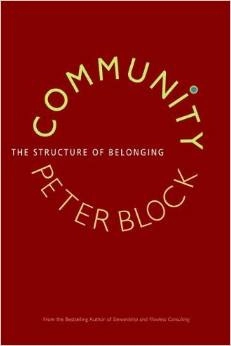Over at the El Moore, a sustainable urban living project now under construction in Detroit at the corner of 2nd Avenue and West Alexandrine, we are also re-building a community.
In his 2009 book, Community: The Structure of Belonging, Peter Block describes the plight of many of today’s communities: fragmented, trapped in dysfunctional and outdated paradigms of marginalization of residents, broken or nonexistent social services, and reduced senses of “neighborhood”. As the community that is the City of Detroit reinvents itself yet again, there many in the City who are lamenting what they perceive as a concentration on just a few neighborhoods or areas, such as Downtown, Midtown, and Corktown, while all of the other Detroit neighborhoods are being neglected by the “powers that be”.
Block contends that neighborhoods seeking to be part of a healthy community can transform themselves, rather than waiting for someone to come in and “save” them. Block recommends that neighborhoods do a major paradigm shift from considering themselves to have deficiencies, to acknowledging and building upon the possibilities and gifts that already exist.
Block describes how communities that are successfully building or rebuilding vibrant neighborhoods with enhanced qualities of life begin by asking what he calls “powerful questions”, questions that intimately engage people, confront people with their own freedom, and invite people to co-create a future with possibility. Powerful questions have three qualities:
1) They are ambiguous, requiring each person asked to bring his or her own personal meaning to the answer.
2) They are personal and create space for passion, commitment, and connections with others.
3) They evoke anxiety that in turn helps people to confront that which makes them anxious about the past or the present and in turn give people the “edge” necessary for positive change.
The process of community building in Detroit must begin with conversations, not commands, conversations with the communities that will be rebuilt and redeveloped and that will work for all.
What questions are being asked in your neighborhood? Do the answers eventually lead to a neighborhood that provides hospitality and generosity instead of isolation?

